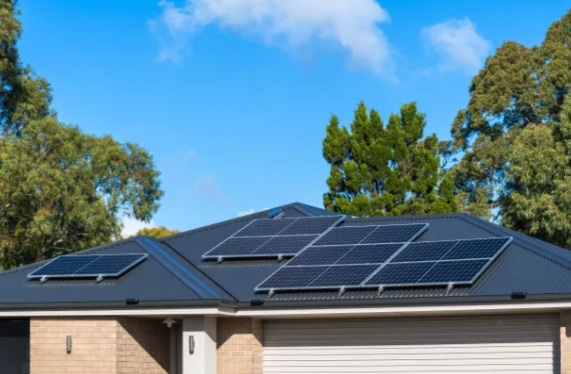Installing a residential solar system is a significant decision that can bring numerous benefits, including reduced electricity bills, environmental sustainability, and increased home value. To ensure a successful solar installation, it's crucial to consider various factors that can impact the efficiency, cost-effectiveness, and long-term viability of the system. In this guide, we will explore key considerations for a residential solar installation.

Energy Needs Assessment:
Before diving into solar installation, it's essential to assess your household's energy needs. Analyze your historical electricity consumption, considering seasonal variations. This assessment will help determine the appropriate size of the solar system to meet your energy requirements. Consider future changes in energy consumption, such as the addition of energy-efficient appliances or an electric vehicle.
Energy needs assessment is a crucial step in the installation of a solar power system to ensure optimal performance and cost-effectiveness. The process involves evaluating the energy requirements of a specific location, considering factors such as electricity consumption patterns, available sunlight, and system efficiency.
To begin, it's essential to analyze the historical energy consumption of the site. This involves reviewing past utility bills and understanding the daily and seasonal variations in electricity usage. This data provides valuable insights into the overall energy needs, peak demand periods, and potential areas for energy efficiency improvements.
Next, assessing the solar potential of the location is vital. This includes evaluating the amount of sunlight the area receives throughout the year. Tools like solar irradiance maps and on-site measurements help determine the solar resource available for power generation. Understanding the local climate and weather patterns aids in predicting potential variations in solar output.
Site Evaluation and Solar Potential:
Evaluate your property to assess its solar potential. Factors such as roof orientation, tilt, shading, and available space will impact the system's efficiency. Ideally, solar panels should be installed on a south-facing roof with minimal shading throughout the day. A professional solar installer can conduct a site assessment to determine the optimal placement and tilt for maximum sunlight exposure.
Solar Panel Quality and Type:
Selecting the photovoltaic solar panel for a solar system installation is crucial to maximize energy production and ensure long-term reliability. Two key factors to consider are panel quality and type.
Panel quality is often determined by the materials used, manufacturing processes, and the reputation of the manufacturer. High-quality solar panels typically have better durability, efficiency, and performance under various environmental conditions. It's essential to choose panels from reputable manufacturers with a proven track record in the industry.
Solar panel types include monocrystalline, polycrystalline, and thin-film. Monocrystalline panels are known for their high efficiency and sleek design but tend to be more expensive. Polycrystalline panels are cost-effective and slightly less efficient, making them a popular choice for budget-conscious consumers. Thin-film panels are flexible and lightweight, suitable for specific applications but generally less efficient than crystalline panels.
The selection of solar panel type depends on factors like available space, budget, and desired efficiency. A comprehensive assessment of these factors, coupled with a focus on panel quality, ensures a well-rounded solar system installation that meets both energy production and long-term reliability goals.
Inverter Selection:
Inverters play a crucial role in converting solar-generated DC electricity into AC electricity usable in your home. Choose between string inverters, microinverters, or power optimizers. Microinverters and power optimizers can enhance system performance by mitigating the impact of shading on individual panels. The choice depends on the system size, shading conditions, and budget considerations. In inverter.com, we provides a wide range of high quality power inverters
Battery Storage:
Consider integrating battery storage into your solar system to store excess energy for later use. Batteries provide backup power during grid outages and enable homeowners to maximize self-consumption. Evaluate the battery's capacity, depth of discharge, efficiency, and warranty. While battery technology continues to evolve, it's essential to weigh the upfront cost against the potential long-term benefits.
A successful residential solar installation involves a comprehensive assessment of energy needs, site evaluation, careful equipment selection, consideration of local regulations and incentives, and a thorough financial analysis. By addressing these key factors, homeowners can make informed decisions that maximize the benefits of solar energy while minimizing costs and environmental impact.
